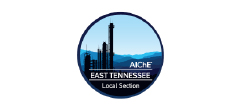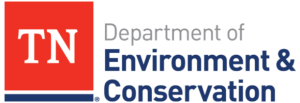TRACK 3: Decarbonization, Safety, Special Topics
Click on seminar title below to read the abstract
Anil Khatri, Sales Director, Midstream Industry Solutions, Honeywell Process Solutions
Terminal logistics and operations digitalization is a complex and challenging undertaking, where many companies struggle for success. Honeywell will share its recipe for success, where it took a holistic approach to enable its customer with an integrated, multi-modal , optimized terminal logistics and operational process and solutions.
What attendees will learn
Attendees will learn how Honeywell “Terminal Manager “ solution has enabled Terminals operators to achieve success:
- Integrated Terminal Logistics and Operations Execution solutions for Terminal Planning, Scheduling and Operations for Rail Tank Cars, Trucks; Marine Operations
- Embedded data intelligent solutions to prioritize safety within planning and operational processes – e.g., product handling matrix for pre-planning/planning rules
- Data Visualization for enterprise scalability and integration ; optimization around financial drivers , KPI(s) – Cycle Time, Safety and Automation
- The future of terminals: Customer Portal
Zack Bondley, Global Technology Leader – Packing, Koch-Glitsch
Post-combustion carbon capture is a vital technology in the future of energy as we strive for decarbonization. Koch Engineered Solutions is uniquely leveraged with a complete range of capabilities designed to help achieve these goals. Structured packing and properly engineered packed tower internals are best utilized together to handle the unique requirements for Amine-based post-combustion carbon capture technologies by providing an optimal combination of efficiency and low pressure drop. Koch-Glitsch’s R&D carbon capture facility allows for testing of a variety of point source CO2 compositions with our structured packings to ensure a superior design for these units. This optimization helps to reduce the capital and energy requirements of full-scale carbon capture facilities. This presentation shows the capabilities that Koch Engineered Solutions capabilities has available and shows application of structured packing technology for post-combustion carbon capture units.
What attendees will learn
- Decarbonization technologies
- Amine-based carbon capture units
- Selection of structured packing and internals
- Techniques for keeping low pressure drop
- Mechanical solutions for structured packed towers
Peter DeWitt, Director of Circular Thermal Business Unit & Mike Seagle, North America HPI-CPI Market Director, Armstrong Inernational
Thermal utility systems account for a lot of environment emissions and are a great place to start when considering the energy efficiency part of decarbonization. That being said, many companies aren’t sure how to go about achieving decarbonization goals without significantly impacting their capex and opex budgets. There are ways to progress towards these goals including steam trap management, condensate return, and waste heat recovery using the Circular Thermal methodology. Each of these practices result in reduced energy usage, reduced CO2 emissions, and a positive ROI. Considering these types of options first gives a good understanding of your true energy requirements in preparation for full decarbonization.
What Attendees will Learn:
- Optimizing thermal systems first focuses on energy efficiency before decarbonizing
- Impact of a proactive steam trap management program
- Circular Thermal methodology (aka waste heat recovery)
Chris Robert, Senior Reliability Leader & Steve Burkle, Senior Reliability Engineer, Tormod
Mechanical Integrity (MI) is a technical subject area that chemical manufacturing companies must continually manage to ensure that assets whose function is to contain hazardous process chemicals are professionally designed, installed, maintained, inspected, repaired, and replaced at the proper time. Mastering Mechanical Integrity supports the optimization of many Key Result Areas including safety, regulatory compliance, production reliability, manufacturing cost, energy efficiency, and capital investment management.
The safety and regulatory compliance aspects of MI elevate its vital importance because of the potential Consequences of Failure if hazardous materials are not properly contained. This consequence can occur if the company’s MI Standard is not well-designed and/or well-managed. Consequences to a company from a failed MI program could include injuries, environmental damages, fines and sanctions, loss of company reputation, production losses, and higher manufacturing costs.
What Attendees Will Learn:
The presentation will focus on properly incorporating professional MI philosophies, technologies, and management systems through the entire Asset Life Cycle to ensure that the asset-owning company remains proactive and able to minimize the Asset Life Cycle Cost of Ownership of the assets while ensuring hazardous chemicals are continually contained. The Asset Life Cycle Cost of Ownership over an asset’s 20-50+ year productive life absolutely dwarfs the asset’s initial capital cost. Successful, sustainable companies focus their attention on managing the Asset Life Cycle Cost of Ownership rather than fixating only upon the asset’s capital cost.
Neera Chawla, Manager, Decarbonization & Sustainability Advisory, Worley Consulting
Gaining a comprehensive understanding of your product value chain is crucial for achieving decarbonization goals amidst the transition to a net zero or low-carbon future. The industry faces mounting pressure to adapt to shifting landscapes influenced by markets and policy. Is there demand for you to decarbonize or incorporate circular economy into your processes? To understand this, it is essential to account for greenhouse gas emissions and identify hotspots across the full value chain from supply to end use including recycle and disposal.
What attendees will learn
- Understanding the demand for decarbonization across your value chain
- Evaluating the hot spots and assessing opportunities
- Navigating the path to a low carbon product
Mark Karjewski, Director, Technical Services, Aspen Aerogels
Advances in thermal insulation materials provide facility designers and owners powerful tools to improve their facilities safety, reliability, efficiency while lowering carbon emissions. Insulations based on aerogel technology are available in the marketplace and have a proven track record of superior performance to historical commodity insulation products. Flexible aerogel blanket insulations will protect carbon steel assets from the specter of corrosion under insulation (CUI), they resist bulk water absorption which robs process BTU’s from producing product to vaporizing rainwater. They are removable and reusable and can also offer acoustical and passive fire protection in an easy to install, fault tolerant package. By design flexible aerogel blanket insulations exhibit long term durable thermal and physical performance so the thermal efficiency designed into a plant does not rapidly degrade as seen with traditional thermal insulations.
What attendees will learn:
- How insulation material choice can have a profound impact on your facilities safety, reliability,
efficiency, and carbon footprint. - How thermal insulation materials can mitigate or worsen CUI.
- The value of having one material provide thermal, passive fire and even acoustical protection.
Ben LeBleu, Enterprise Mobility Business Development Manager, Exclock Intruments Inc.
Industrial valves are found in almost all production processes and are responsible for controlling flow, preventing backflow, regulating and relieving pressure and stopping the process flow when closed. However, studies show that 5-10% of valves in industrial plants are leaking internally which can lead to economic losses, health and safety issues or potentially to environmental pollution. The reason for this is the lack of simple tools and the difficulty for companies to build up expert knowledge internally due to the lack of skilled labour in industry.
As a result, valve leaks often remain unrecognised for a long time until they cause major damage to systems. Valve Sense – the smart and mobile inspection system can help to tackle these challenges. By developing a software-guided inspection process and using algorithms and artificial intelligence to analyze measurement data, valves can now be inspected quickly and easily by maintenance teams. Inspection results become reproducible, data is automatically analyzed and stored in a way that companies can further use it for preventive and predictive maintenance strategies.
What attendees will learn
- Current challenges customers face with valve inspection
- The advantages of acoustic emission as an inspection method
- How algorithms and artificial intelligence can speed up inspection processes and generate more reliable results
- Real-life case studies to improve efficiency and reduce costs due to leaking valves
Rick Jeffress, Director, Business Development, Fike Corporation
Fike and FM Global collaborated to generate standard FM 3270 Approval Standard for Hot Work Robots, to produce an automated, approved portable fire detection system to monitor areas post hot work. The system is also approved for monitoring areas where fire protection is offline or high-risk hazards. FM Global now recommends this portable fire watch to its insured customers in datasheet FM 10-3 Hot Work Management. Fike produces this equipment integrating FM-approved multispectrum infrared flame detectors, video analytics smoke detection, and fire alarm panel.
What attendees will learn
The presentation will discuss the technology, applications, monitoring, and annunciation, as well as applicable codes and FM recommendations



